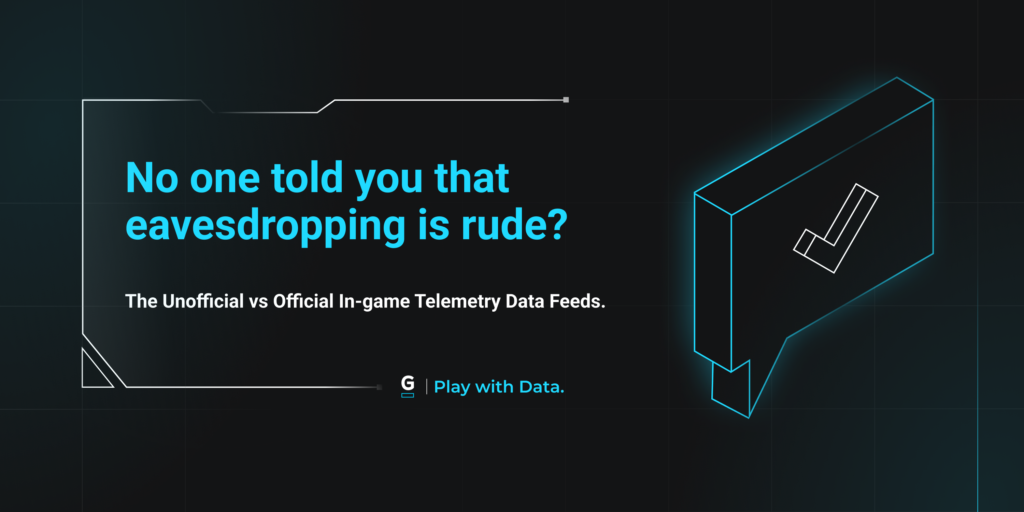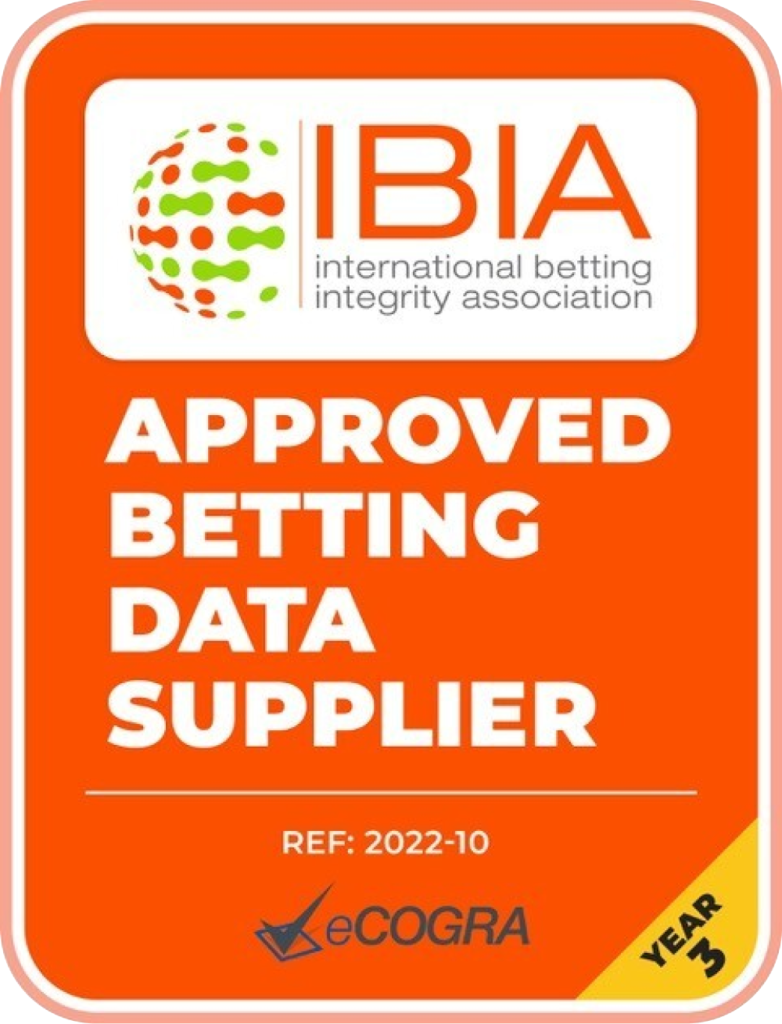If you’ve read the first part of this series – Dive into the game: Understanding In-Game Telemetry Data, you’d probably come across this visual – Official vs Unofficial In-Game Data Telemetry Feeds.
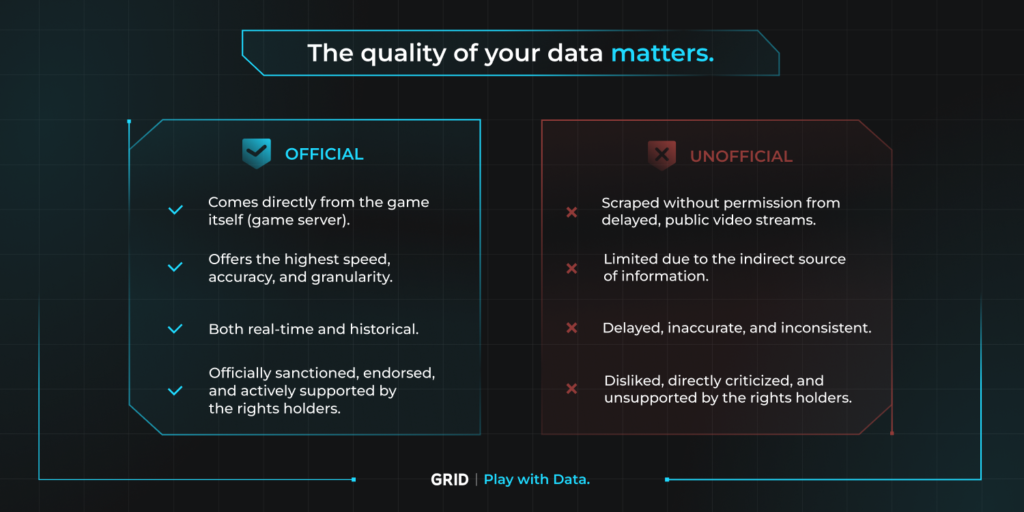
As a fan, game publisher, or someone who’s using in-game data in their business, why is it so important to know the difference?
In this article we break down the differences between unofficial and official data feeds explaining why there’s such a significant discrepancy in the quality between data coming directly from the game server and scrapped in-game data.
Stick with us until the end and you will not have to worry about any data faux pas happening down the line.
This article is the conclusion of the three-part series: Introduction to In-Game Telemetry Data. If you want to learn more about the basics of in-game telemetry data check out part 1: Dive into the game: What is in-game telemetry data and part 2: The Role of In-game Telemetry Data in Esports: Tapping into the Game-Changing Dynamics of the competitive scene.
One: In gaming, there is one source of in-game data truth.
Think about basketball, football or baseball, data collection is a crucial part of their business enabling additional revenue streams but also better coaching, analytics or fan engagement.
Data in traditional sports is valuable yet if you compare data from official and unofficial sources, there’s not much of a difference. In the end, in traditional sports, there are usually two teams, the action is centralized around the ball, spectators sit around the field, capable of following the entire action.
In traditional sports official and unofficial data is collected in a very similar way — you can sit in the section of an official data partner of the tournament and collect data or in a pretty decent spot on the tribunes collecting unofficial data, you get exactly the same overview of the action happening on the field. So in the end the quality of the input is not much different.
Now think about video games.
First of all, there’s not really a way to sit on the side of the game server, the spectators are being presented with a limited point of view through the livestream of the game. On top of that, think about the complexity of esports.
Let’s use League of Legends as an example, you have top line, middle line, bottom line, bushes with additional quests, five champions with unique abilities on each side — to put it simply multiply the action happening on one football field by min. four or five, all happening in parallel, and you’ll get an equivalent of an esports match.
When it comes to official data, you can get it only from a game server – plug in there and get everything that’s happening on all the football fields of the Summoner’s Rift at the same time.
Still want to collect unofficial data? Good luck trying to follow the ENTIRE game with access to only a little keyhole-like view while scraping the publicly available video streams from the livestream platform.
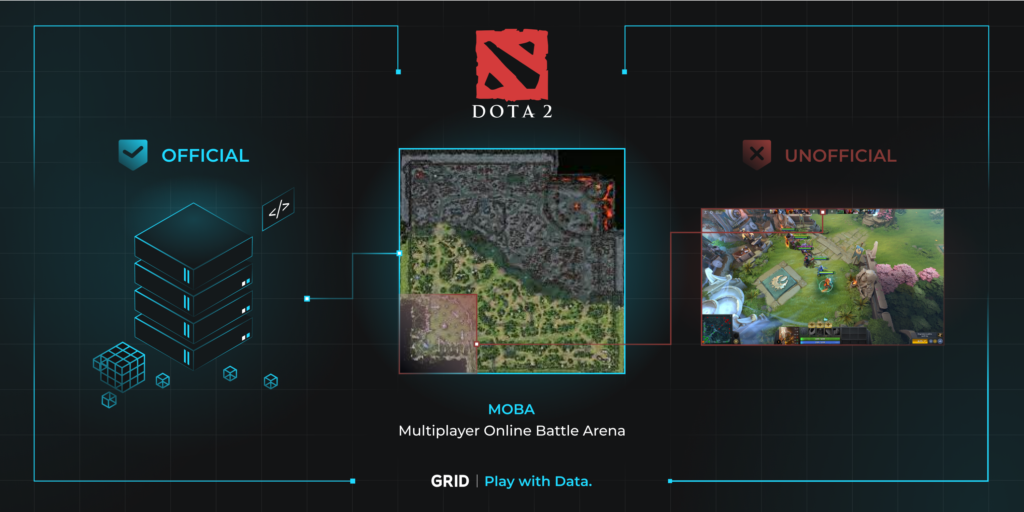
Two: In-game Telemetry Data is a part of game IP.
Official data in esports is in a class of its own when compared with unofficial data for esports and official or unofficial data for traditional sports
In esports there is an actual IP owner of the sport itself contrary to traditional sports where the rights holder licenses data rights only to the competition or tournament played in a specific sport. This means, from a rights’ perspective the data is as part of the game IP, similar to artwork, logos, or images, and therefore a lot more tangible as an asset that belongs to the game publisher.
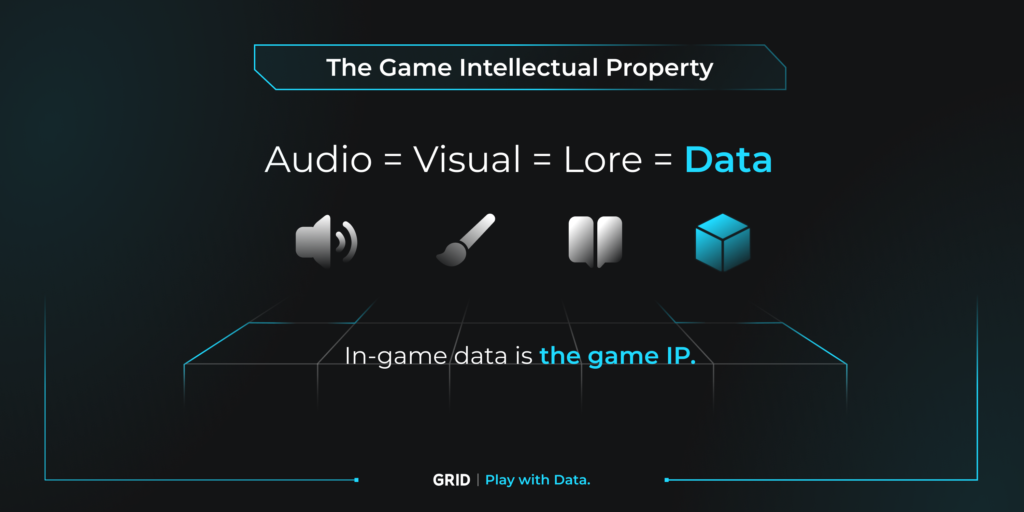
Using unofficial data you’re effectively abusing the property of the game developers. Use official data and be part of the official game ecosystem.
What comes with it? Since there’s a direct buy-in from the rights holders, it means they’re invested in the space resulting with more opportunities coming directly from the creators of the game, better support for the data feeds, and overall a more sustainable environment for your project or business development.
Three: The role of official data is recognized in the industry regulations.
The importance of official data transcends mere operational or ethical considerations; it’s also a matter of regulatory compliance and industry standards.
In the esports domain, where the landscape is rapidly evolving, the distinction between official and unofficial data acquires legal and regulatory dimensions. Authorities and regulatory bodies are increasingly acknowledging the significance of utilizing official data feeds to ensure integrity, fairness, and transparency within the industry, especially in esports betting.
This recognition by industry regulations not only legitimizes the use of official data but also underscores the potential legal ramifications for entities relying on unofficial sources.
By aligning with official data feeds, organizations ensure they are operating within the legal frameworks set forth by governing bodies, thereby safeguarding their operations against potential legal challenges and contributing to the overall credibility and reliability of the esports ecosystem.
If you want to learn more about the legal framework for official data in betting, check the interview with Moritz Maurer, CEO & Founder – GRID Esports CEO Moritz Maurer on US betting regulations for esports and the role of game publishers in the esports ecosystem.
Four: Incomparable quality of official data.
The superiority of official esports data is undeniable, offering live, non-delayed insights that are sanctioned directly by the game developers themselves.
This level of access and authenticity cannot be matched by unofficial sources, which often rely on aggregated data from public streams that are inherently delayed and may lack the comprehensive coverage that official data provides.
Data.bet, as highlighted in a partnership announcement with GRID, illustrates the transformative impact that high-quality, official data can have on products and services within the esports industry. By integrating live, official data feeds, data.bet has been able to offer enhanced betting experiences that are more engaging, accurate, and reliable.
This not only benefits the end-users but also strengthens the value proposition of services leveraging this data, demonstrating the tangible advantages of prioritizing official data sources over unofficial ones in driving innovation and delivering superior experiences in the esports sector.
Summary
In conclusion, understanding the distinction between unofficial and official in-game telemetry data feeds is crucial for fans, game publishers and businesses utilizing gaming data.
Traditional sports may not exhibit significant differences in data quality between official and unofficial sources, but in esports, the complexity demands access to official data from game servers.
Official data is considered part of the game’s intellectual property, offering better support, opportunities, and sustainability. Additionally, industry regulations increasingly recognize the importance of official data for integrity and transparency, particularly in esports betting.
The superiority of official data, offering live, non-delayed insights directly from game developers, cannot be matched by unofficial sources.
This difference underscores the importance of prioritizing official data sources over unofficial ones in driving innovation and delivering superior experiences in the esports sector.
We hope this series has been informative and we’re always keen to talk about in-game data, get in touch with GRID on LinkedIn, X or send an email to the address below with any questions.
At GRID we’re proud to be at the forefront of in-game data innovation providing solutions for data sourcing (GRID Game SDK), analytics, integrity, and distribution in competitive game titles. GRID is the official data platform for League of Legends, VALORANT, Rainbow Six Siege, PUBG, CS2, and Dota2. If you are looking for an in-game telemetry data infrastructure for your existing or upcoming competitive title or are interested in getting access to official data for your products contact [email protected].
